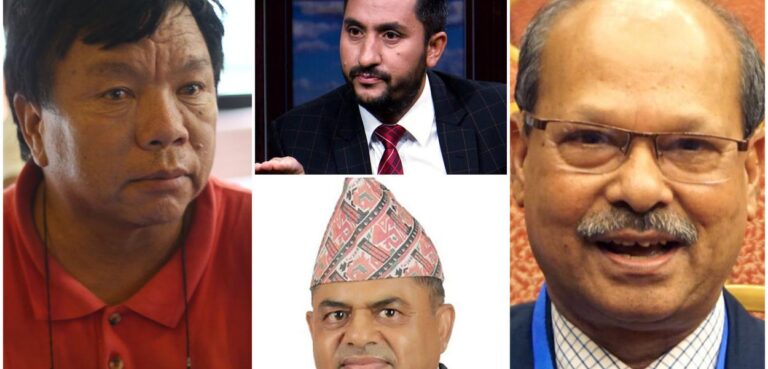Prime Minister Sushila Karki Expands Cabinet with Key Appointments
Ten days following her nomination as caretaker Prime Minister, Sushila Karki has bolstered her Council of Ministers with the addition of four prominent figures: Mahabir Pun, a Ramon Magsaysay Award winner; television anchor Jagadish Kharel; former Justice Anil Kumar Sinha; and Madan Pariyar, chair of the Samata Foundation. This strategic expansion comes as Karki faces pressure to swiftly finalize her cabinet.
Challenges in Cabinet Formation
Karki’s effort to assemble a compact and inclusive Cabinet has proven challenging amid various pressures. The Prime Minister aimed to invite professionals with no political affiliations, emphasizing integrity and experience. However, several candidates approached for ministerial positions declined, primarily due to concerns about their political aspirations and campaigning restrictions ahead of the early elections set for March 5, 2026.
Notable Rejections
Among those who opted out were renowned ophthalmologist Sanduk Ruit, who cited commitments to his Tilganga Institute of Ophthalmology. Cardiologist Bhagwan Koirala also declined a role, reportedly due to concerns over his association with Min Bahadur Gurung, whose business was impacted during recent protests. Consequently, both candidates chose to focus on their professional responsibilities rather than join the interim government.
Health Minister Selection Change
Initially, public health expert Sangita Kaushal Mishra was finalized as the Health Minister. However, her nomination was quickly retracted after her involvement in a corruption investigation came to light. This unexpected turn once again emphasized the difficulties Karki faces as she strives to fill key positions within her Cabinet.
New Ministerial Appointments
In her newly formed Cabinet, Mahabir Pun takes charge as Minister of Education, Science, and Technology, renowned for his contributions to rural connectivity. Jagadish Kharel assumes the role of Minister of Communications and Information Technology, utilizing his extensive experience in journalism. Additionally, Anil Kumar Sinha is set to lead the Ministry of Law, Justice, and Parliamentary Affairs, bringing his judicial experience into governance.
Engagement with the GenZ Protesters
The selection of the new ministers was influenced by consultations with representatives of the GenZ protesters. This underscores the importance of community representation in the current political landscape. Recent appointments, such as that of advocate Om Prakash Aryal as Home Minister, faced backlash due to perceived lack of consultation with these groups, confirming the need for Karki to navigate public sentiment carefully.
Looking Ahead: Upcoming Elections and Electoral Reforms
With elections for the House of Representatives slated for March 5, 2026, the new ministers have critical tasks ahead. Reforming electoral processes to allow Nepalis living abroad to vote poses a significant challenge. As the interim government grapples with time constraints and concerns over the dissolution of Parliament, there are discussions about extending the preparation period by two months to facilitate a seamless electoral process.
Profiles of New Ministers
The new appointments include individuals with substantial experience and expertise. Mahabir Pun, known for connecting rural areas to wireless internet, exemplifies professional dedication. Jagadish Kharel brings two decades of media experience, while Anil Kumar Sinha adds judicial insight to legislative matters. Meanwhile, Madan Pariyar, a scholar in agriculture and social governance, aims to steer the Ministry of Agriculture towards inclusivity and advancement.
Future Composition of the Cabinet
Looking forward, PM Karki intends to limit her cabinet to 11 members overseeing 22 ministries, potentially managing multiple portfolios herself. Currently, some members, like Kulman Ghising and Om Prakash Aryal, are already covering dual roles, indicating a practical approach to governance amidst resource limitations. The success of this renewed Cabinet will depend heavily on their ability to address public concerns and deliver on promised reforms.
